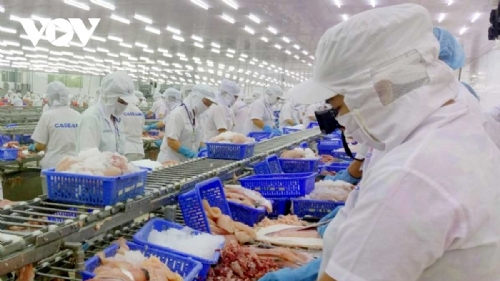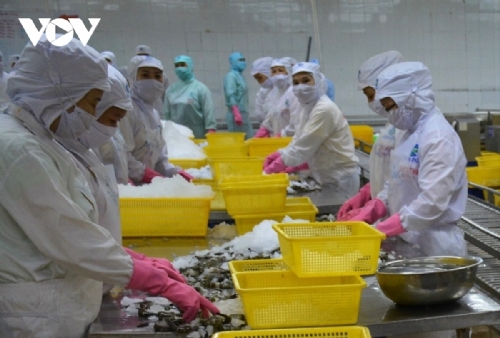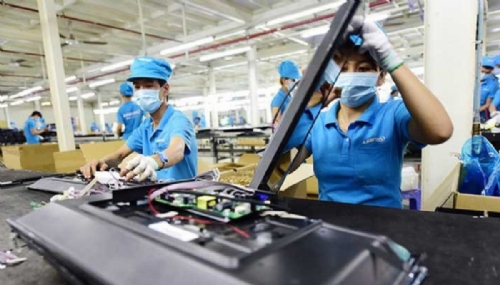Better Links with FDI Firms Can Aid Local Businesses
Thursday, February 14, 2019 11:23
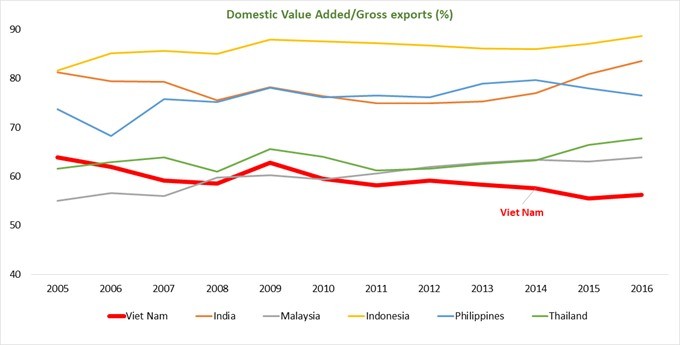
Over the past 20 years Việt Nam has embraced trade and successfully integrated into key global value chains. Việt Nam’s gross exports have expanded at an average rate of 18 per cent over the past decade, when overall global trade expanded at just 3.5 per cent. But it is not only the level and growth rate that is noteworthy, it is also the increasing diversification of Việt Nam’s exports—including a rising share of manufacturing exports that totalled US$190 billion in 2018, accounting for 80 per cent of Việt Nam’s gross exports.
Việt Nam has become a manufacturing hub and major destination for FDI. As a share of GDP, it has received more FDI than any other ASEAN economy in the past decade, mostly in labour-intensive manufacturing. Việt Nam’s trade performance is driven by the FDI sector, which accounts for 70 per cent of exports and is achieving a significant surplus.
While FDI-based manufacturing is a success, the performance of domestic firms has lagged. Only half of the value of Việt Nam’s gross exports is generated in the country. Similarly, Việt Nam’s manufacturing exports have relatively high import content – the highest in all of ASEAN (figure 1).
Việt Nam’s value-added contribution is particularly low in high-value manufacturing products such as electronics and phones. In electronics, for example, domestic value is only about 40 per cent, and 60 per cent is import content.
Qualified domestic suppliers – needle in a haystack
This reflects the fact that both the quality and quantity of domestic suppliers to FDI firms is low – as confirmed by the World Economic Forum’s competitiveness report. This is rooted in firm-level constraints – especially their management capabilities. Only 9 per cent of domestic firms have international quality certifications such as ISO 9000 or Six Sigma, and domestic firms without FDI linkages are 4 times less likely to comply with established, internationally recognised processes or achieve quality certifications. Skills shortages can be easily seen in linked firms, reflecting the need for more sophisticated skills to comply with the quality and technological requirements of global supply chains.
At the same time, Vietnamese firms are often engaged in basic assembly – a process with lower value-addition compared to other areas such as research and development, design, marketing and services. The emergence of Industry 4.0 has made the value-addition of manufacturing even lower. Vietnamese firms need to move up and beyond manufacturing if they are to capture more value in the global value chain. In particular, Việt Nam needs to look beyond manufacturing at key high value services, such as pre-production (e.g. research and development, design) and post-production (marketing and embedded services) to capture an increasing share of added value (figure 2).
|
image: http://image.vietnamnews.vn//uploadvnnews/Article/2019/2/13/Figure279841237PM.jpg 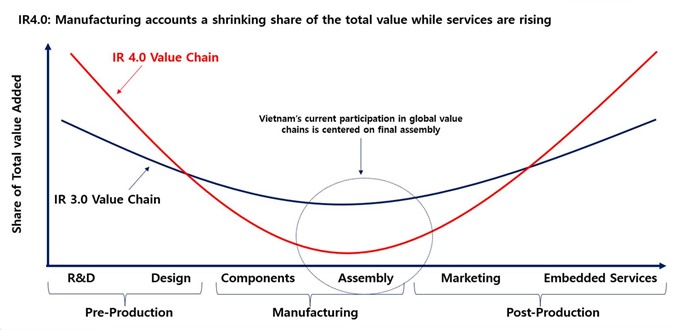 |
| Figure 2 |
It takes three to tango
It is now critical to invest in building the competitiveness of domestic private sectors so they can enter the supply chain. Enhancing linkages of domestic companies to multinational enterprises can help increase domestic value-addition, generate employment, and improve local firm productivity and market access. However, such linkages don’t happen automatically. What is required is a combination of deliberate effort, targeted policies and hands-on support.
As recently presented at the Việt Nam Economic Forum, I believe a three-pronged approach is needed to create a conducive policy framework to improve the contribution FDI makes to the value-addition of domestic firms:
• Strategic FDI attraction: Focus on FDI that can create real opportunities for local suppliers, who can also provide local counterparts with not only finance but also technology, skills, know-how and international standards.
• Local enterprise capacity-building: Establish supporting mechanisms to help suppliers overcome supply-side constraints and achieve “qualified-supplier status” so they can provide goods and services that meet international standards.
• Linkage development: Put in place an effective selection and matching mechanism that links FDI and local firms.
Việt Nam faces a significant opportunity in upgrading its domestic value contribution to capture the full benefits of FDI inflows and global value chains. Expanding the participation of domestic companies in global value chains can lead to higher output, productivity and jobs. Such benefits can only come as long as a comprehensive policy focus is in place to enhance the competitiveness of domestic enterprises, which includes an enabling business environment, access to finance, upskilling, targeted and hands-on upgrading programmes for domestic enterprises. — VNS
* Ousmane Dione is the Country Director of the World Bank in Việt Nam
Source: Viet Nam News By Ousmane Dione*
Other news
- Vietnam remains world's second biggest coffee exporter(9/16/2022 10:49:37 AM)
- 2022 trade surplus estimated at US$1 billion(8/31/2022 2:45:08 PM)
- Shrimp exports to US, China endures double-digit decrease in July(8/31/2022 2:39:52 PM)
- Global inflation skyrockets as domestic exports start to feel pinch(8/30/2022 4:08:37 PM)
- Exports to the Netherlands edge up 31.6% over seven months(8/30/2022 4:05:24 PM)
- Bangladesh to purchase huge amount of rice from Vietnam(8/30/2022 4:03:18 PM)
- Shrimp exports to US, China endures double-digit decrease in July(8/30/2022 4:01:31 PM)
- Textile - garment exports to grow further this year(8/30/2022 3:48:20 PM)
- Aquatic exports to Belgium surge 74.32% during seven-month period(8/24/2022 3:27:21 PM)
- US, China become largest consumers of Vietnamese pangasius(8/24/2022 3:22:24 PM)



